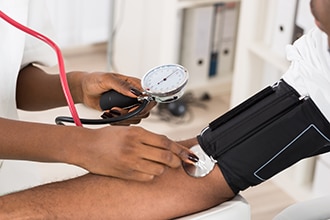Constipation
Return to Overview PageDefinition & Facts
In this section:
What is constipation?
Constipation is a condition in which you may have
- fewer than three bowel movements a week
- stools that are hard, dry, or lumpy
- stools that are difficult or painful to pass
- a feeling that not all stool has passed
However, people can have different bowel movement patterns, and only you know what’s normal for you.
Constipation is not a disease, but may be a symptom of another medical problem. Constipation may last for a short or long time.

How common is constipation?
Constipation is common among all ages and populations in the United States. About 16 out of 100 adults have symptoms of constipation. About 33 out of 100 adults ages 60 and older have symptoms of constipation.1
Who is more likely to become constipated?
Certain people are more likely to become constipated, including2
- women, especially during pregnancy or after giving birth
- older adults
- non-Caucasians
- people who eat little to no fiber
- people who take certain medicines or dietary supplements
- people with certain health problems, including functional gastrointestinal disorders
References
Symptoms & Causes
What are the symptoms of constipation?
Symptoms of constipation may include
- fewer than three bowel movements a week
- stools that are hard, dry, or lumpy
- stools that are difficult or painful to pass
- a feeling that not all stool has passed
When should I see a doctor?
You should see a doctor if your symptoms do not go away with self-care or you have a family history of colon or rectal cancer.
You should see a doctor right away if you have constipation and any of the following symptoms
- bleeding from your rectum
- blood in your stool
- constant pain in your abdomen
- inability to pass gas
- vomiting
- fever
- lower back pain
- losing weight without trying

What causes constipation?
You may be constipated for many reasons, and constipation may have more than one cause at a time. Causes of constipation may include
- slow movement of stool through your colon
- delayed emptying of the colon from pelvic floor disorders, especially in women, and colon surgery
- functional gastrointestinal disorders, such as irritable bowel syndrome
Certain medicines and dietary supplements
Medicines and dietary supplements that can make constipation worse include
- antacids that contain aluminum and calcium
- anticholinergics and antispasmodics
- anticonvulsants—used to prevent seizures
- calcium channel blockers
- diuretics
- iron supplements
- medicines used to treat Parkinson’s disease
- narcotic pain medicines
- some medicines used to treat depression
Life changes or daily routine changes
Constipation can happen when your life or daily routine changes. For example, your bowel movements can change
- if you become pregnant
- as you get older
- when you travel
- when you ignore the urge to have a bowel movement
- if you change your medicines
- if you change how much and what you eat
Certain health and nutrition problems
Certain health and nutrition problems can cause constipation
- not eating enough fiber
- not drinking enough liquids, or dehydration
- not getting enough physical activity
- celiac disease
- disorders that affect your brain and spine, such as Parkinson’s disease
- spinal cord or brain injuries
- conditions that affect your metabolism, such as diabetes
- conditions that affect your hormones, such as hypothyroidism
- inflammation linked to diverticular disease or proctitis
- intestinal obstructions, including anorectal blockage and tumors
- anatomic problems of your digestive tract
Diagnosis
How do doctors find the cause of constipation?
Doctors use your medical and family history, a physical exam, or medical tests to diagnose and find the cause of your constipation.
Medical and family history
Your doctor will ask you questions about your medical history, such as
- whether you have ever had surgery to your digestive tract
- if you have recently lost or gained weight
- if you have a history of anemia
Your doctor also is likely to ask questions about your symptoms, such as
- How often do you have a bowel movement?
- How long have you had symptoms?
- What do your stools look like?
- Do your stools have red streaks in them?
- Are there streaks of blood on your toilet paper when you wipe?
Your doctor is likely to ask questions about your routines, such as
- What are your eating habits?
- What is your level of physical activity?
- What medicines, including supplements, and complementary and alternative medicines, do you take?
You may want to track your bowel movements and what your stools look like for several days or weeks before your doctor’s visit. Write down or record the information so you can share it with your doctor.
If you’ve been constipated a long time, your health care professional may ask whether anyone in your family has a history of conditions that may cause long-lasting constipation, such as
- anatomic problems of the digestive tract
- intestinal obstruction
- diverticular disease
- colon or rectal cancer
Physical exam
During a physical exam, a health care professional may
- check your blood pressure, temperature, and heart rate
- check for dehydration
- use a stethoscope to listen to sounds in your abdomen
- check your abdomen for
- swelling
- tenderness or pain
- masses, or lumps
- perform a rectal exam

What medical tests do doctors use to find the cause of constipation?
Depending on your symptoms and health, your doctor may first try a treatment to improve your symptoms before using tests.
Lab tests
Your doctor may use one or more of the following lab tests to look for signs of certain diseases and conditions that may be causing your constipation
- Blood tests can show signs of anemia, hypothyroidism, and celiac disease.
- Stool tests can show the presence of blood and signs of infection and inflammation.
- Urine tests can show signs of diseases such as diabetes.
Endoscopy
Your doctor may perform an endoscopy to look inside your anus, rectum, and colon for signs of problems in your lower digestive tract. Endoscopies for constipation include
During these two tests, your doctor may also perform a biopsy. A biopsy is a procedure that involves taking small pieces of tissue and examining them under a microscope. A doctor can use a biopsy to look for signs of cancer or other problems.
Colorectal transit studies
Your doctor may use bowel function tests called colorectal transit studies to see how well your stool moves through your colon.
- Radiopaque markers—an x-ray that tracks radioactive markers while they pass through your digestive system. You swallow capsules with the markers, which take about 3 to 7 days to come out with a bowel movement.
- Scintigraphy—a test that involves eating a meal with a small dose of a radioactive substance. Your doctor tracks the substance using special computers and cameras as the substance passes through your intestines.
Other bowel function tests
Your doctor may also use one or more of the following tests to look for signs of certain diseases and conditions that may be causing your constipation
- defecography—an x-ray of the area around the anus and rectum to see how well you can hold and release stool
- anorectal manometry—a test to check how sensitive your rectum is, how well it works, and how well the anal sphincters work
- balloon expulsion test—a test that involves pushing a small water balloon from your rectum to see if you have a problem pushing out stool
Imaging tests
To look for other problems that may be causing your constipation, your doctor may perform an imaging test such as
Treatment
How can I treat my constipation?
You can most often treat your constipation at home by doing the following
Change what you eat and drink
Changing what you eat and drink may make your stools softer and easier to pass. To help relieve your symptoms
- eat more high-fiber foods
- drink plenty of water and other liquids if you eat more fiber or take a fiber supplement
Read about what you should eat and drink to help relieve constipation. Depending on your age and sex, adults should get 22 to 34 grams of fiber a day.3

Get regular physical activity
Getting regular physical activity may help relieve your symptoms.
Try bowel training
Your doctor may suggest that you try to train yourself to have a bowel movement at the same time each day to help you become more regular. For example, trying to have a bowel movement 15 to 45 minutes after breakfast may help, because eating helps your colon move stool.
Make sure you give yourself enough time to have a bowel movement, and use the bathroom as soon as you feel the need to go. Try to relax your muscles or put your feet on a footstool to make yourself more comfortable.
Stop taking certain medicines or dietary supplements
If you think certain medicines or dietary supplements are causing your constipation, talk with your doctor. He or she may change the dose or suggest a different medicine that does not cause constipation. Don’t change or stop any medicine or supplement without talking with a health care professional.
Take over-the-counter medicines
Your health care professional may recommend using a laxative for a short time. He or she will tell you what type of laxative is best for you
- fiber supplements (Citrucel, FiberCon, Metamucil)
- osmotic agents (Milk of Magnesia, Miralax)
- stool softeners (Colace, Docusate)
- lubricants, such as mineral oil (Fleet)
- stimulants (Correctol, Dulcolax)
You should only use stimulants if your constipation is severe or other treatments have not worked.
If you’ve been taking laxatives for a long time and can’t have a bowel movement without taking a laxative, talk with your doctor about how you can slowly stop using them. If you stop taking laxatives, over time, your colon should start moving stool normally.
 Your doctor may suggest using a laxative for a short time. He or she will tell you what type of laxative is best for you.
Your doctor may suggest using a laxative for a short time. He or she will tell you what type of laxative is best for you.
How do doctors treat constipation?
If self-care treatments don’t work, your doctor may prescribe a medicine to treat your constipation. If you’re taking an over-the-counter or prescription medicine or supplement that can cause constipation, your doctor may suggest you stop taking it, change the dose, or switch to a different one. Talk with your doctor before changing or stopping any medicines.
Prescription medicines
Your doctor may prescribe one of the following medicines for constipation
- lubiprostone—a medicine prescribed to increase fluid in your digestive tract, which can help reduce pain in your abdomen, make your stool softer, and increase how often you have bowel movements
- linaclotide or plecanatide—medicines that help make your bowel movements regular if you have irritable bowel syndrome with constipation or long-lasting constipation without a known cause
- prucalopride—a medicine that helps your colon move stool if you have long-lasting constipation without a known cause
Biofeedback therapy
If you have problems with the muscles that control bowel movements, your doctor may recommend biofeedback therapy to retrain your muscles. By using biofeedback therapy, you can change how you make your muscles work.
Surgery
Your doctor may recommend surgery to treat an anorectal blockage caused by rectal prolapse if other treatments don’t work. Your doctor may perform surgery to remove your colon if your colon muscles don’t work correctly. If your doctor recommends surgery, ask about the benefits and risks.
How can I prevent constipation?
You can help prevent constipation by doing some of the same things that treat constipation
- get enough fiber in your diet
- drink plenty of water and other liquids
- get regular physical activity
- try to have a bowel movement at the same time every day
Learn more about how you can help prevent constipation with eating, diet, and nutrition.
Reference
Eating, Diet, & Nutrition
What should I eat and drink if I’m constipated?
Eat enough fiber. Drink plenty of liquids to help the fiber work better.
Fiber
Depending on your age and sex, adults should get 22 to 34 grams of fiber a day.4 Older adults sometimes don’t get enough fiber because they may lose interest in food.
Talk with a health care professional, such as a dietitian, to plan meals with the right amount of fiber for you. Be sure to add fiber to your diet a little at a time so your body gets used to the change.
Good sources of fiber are
- whole grains, such as whole wheat bread and pasta, oatmeal, and bran flake cereals
- legumes, such as lentils, black beans, kidney beans, soybeans, and chickpeas
- fruits, such as berries, apples with the skin on, oranges, and pears
- vegetables, such as carrots, broccoli, green peas, and collard greens
- nuts, such as almonds, peanuts, and pecans
Plenty of water
You should drink water and other liquids, such as naturally sweetened fruit and vegetable juices and clear soups, to help the fiber work better. This change should make your stools softer and easier to pass.
Drinking enough water and other liquids is also a good way to avoid dehydration. Staying hydrated is good for your overall health and can help you avoid getting constipated. Ask a health care professional how much liquid you should drink each day based on your size, health, activity level, and where you live.
 Talk with a health care professional to plan meals with the right amount of fiber for you.
Talk with a health care professional to plan meals with the right amount of fiber for you.
What should I avoid eating or drinking if I’m constipated?
To help prevent or relieve constipation, avoid foods with little to no fiber, such as
- chips
- fast food
- meat
- prepared foods, such as some frozen meals and snack foods
- processed foods, such as hot dogs or some microwavable dinners
Reference
Clinical Trials
The National Institute of Diabetes and Digestive and Kidney Diseases (NIDDK) and other components of the National Institutes of Health (NIH) conduct and support research into many diseases and conditions.
What are clinical trials, and are they right for you?
Clinical trials are part of clinical research and at the heart of all medical advances. Clinical trials look at new ways to prevent, detect, or treat disease. Researchers also use clinical trials to look at other aspects of care, such as improving the quality of life for people with chronic illnesses. Find out if clinical trials are right for you.
Watch a video of NIDDK Director Dr. Griffin P. Rodgers explaining the importance of participating in clinical trials.
What clinical trials are open?
Clinical trials that are currently open and are recruiting can be viewed at ClinicalTrials.gov.
This content is provided as a service of the National Institute of Diabetes and Digestive and Kidney Diseases
(NIDDK), part of the National Institutes of Health. NIDDK translates and disseminates research findings to increase knowledge and understanding about health and disease among patients, health professionals, and the public. Content produced by NIDDK is carefully reviewed by NIDDK scientists and other experts.
The NIDDK would like to thank Brian E. Lacy, Ph.D., M.D., Mayo Clinic, Jacksonville, Florida

